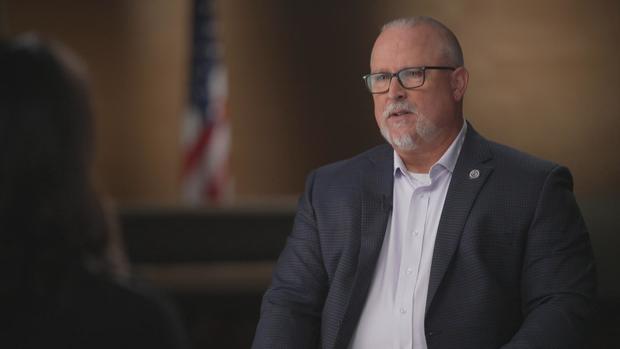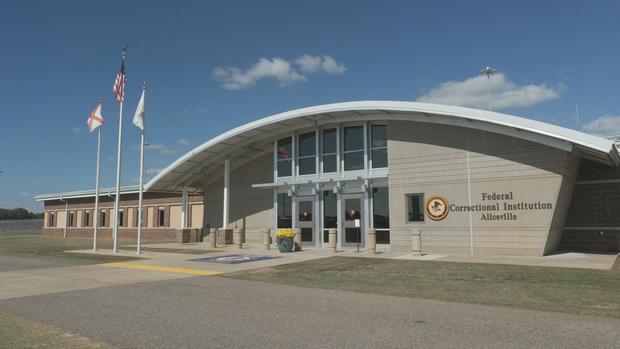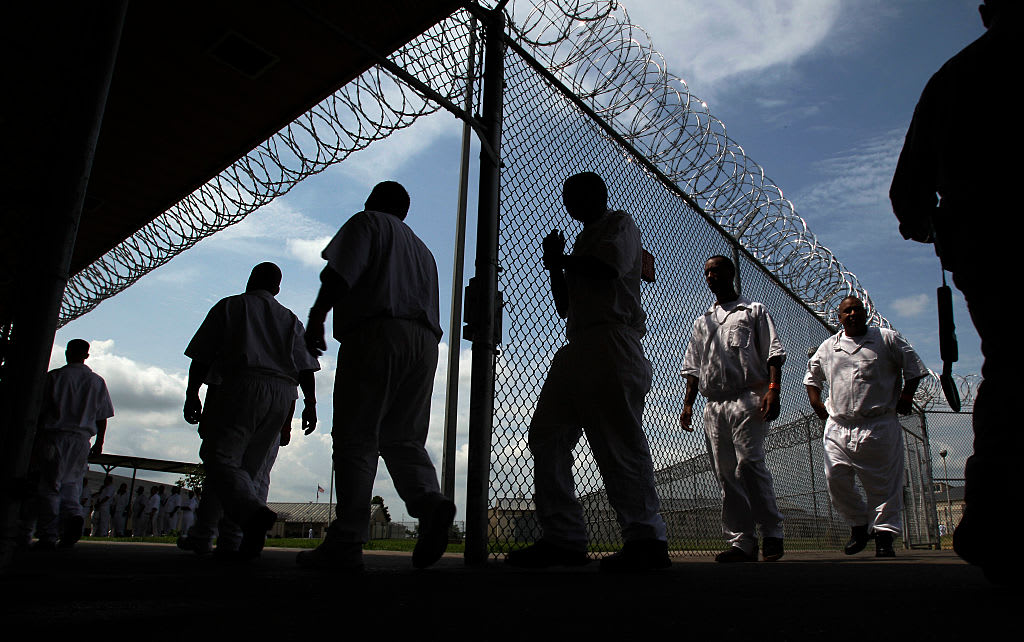Federal prisons, short on correctional officers, rely on other staff to supervise offenders
The understaffed Federal Bureau of Prisons has enlisted its staff of teachers, nurses and doctors along with food service and maintenance employees to monitor offenders behind bars. These personnel, though they're not employed as correctional officers, do have training in supervising inmates.
The Bureau of Prisons is down about 40% of the correctional officers it needs, according to Shane Fausey, the recently retired president of the American Federation of Government Employees, Council of Prison Locals, the federal prison employees union. Union and management agree: prison staff, like teachers and doctors, need to be able to do their jobs so that inmates don't lose access to critical services and programs.
"Their buzz phrase is, 'Everybody's a correctional officer first.' That sounds good on paper," Fausey said, adding that if you take teachers out of prison classrooms and "nobody's teaching the offender the skills to go back out to society, we're just back to warehousing people."
Staffing at the nation's prisons
The staffing shuffle is the result of a controversial practice called augmentation.
"But I can tell you, I'm no better a plumber than they are a correctional officer," Fausey said.
Augmentation should only be used in the short term, Bureau of Prisons Director Colette S. Peters said. It's being used now as a stop-gap measure while officials try to solve the agency's long-term retention and recruitment problems.
When Peters took office in August 2022, she became the agency's sixth director in six years.
Employees rank the Bureau of Prisons the worst place to work in the federal government. According to Peters, staffing was a problem before the COVID pandemic and the situation has become more challenging in the time since.
Peters does not have a number for how many correctional officers the Bureau of Prisons needs to resolve its staffing crisis. The director said she expects to know the number of officers needed by October — more than two years after taking office.
Fausey says the agency is down 8,000 officers. The shortfall in supervision has led to an increase in misconduct and violence, he said.
"It results in one of us losing our lives. And it's that bad," he said. "We can't continue with this course."
Inmates at Federal Correctional Institution, Aliceville in Alabama said the facility is short-staffed all the time.
"There's times where you don't know if you're going to be able to go outside because somebody didn't come to work," one of a group of women in custody interviewed by 60 Minutes said.
Sexual abuse at prisons
Of all the issues plaguing the Bureau of Prisons, perhaps none is more disturbing than the rampant sexual abuse of female inmates by the male officers who are supposed to protect them.
Women are housed in nearly a quarter of the nation's 122 federal prisons. A 2022 Senate investigation found that Bureau of Prisons staff have sexually abused female prisoners in at least two-thirds of those facilities over the past decade.
The Bureau of Prisons has a backlog of nearly 8,000 open misconduct investigations — hundreds of which contain allegations of sexual abuse. Peters hired more staff to tackle the backlog, but she says it will take two years to clear those cases.
"You can't predict human behavior," Peters said. "But what I can tell you is the things that we're putting in place to manage that misconduct I think are the right things, and sending a clear message that this type of behavior is egregious, horrendous and inexcusable."
But female inmates at Federal Correctional Institution, Dublin in Northern California accuse Peters and the Bureau of Prisons of failing to protect them. To inmates and staff, the facility is known as "the rape club."
Seven Dublin officers, including the warden and the chaplain, have been convicted of sexually abusing nearly two dozen inmates from 2018 to 2021. Former officer Tess Korth said she reported the chaplain and other officers who she suspected of sexually abusing inmates to an internal affairs investigator. She said she was ignored for years until federal investigators stepped in. Korth resigned in 2022 after she said she was retaliated against for whistleblowing.
This past August, eight Dublin inmates filed suit claiming ongoing sexual abuse. Bureau of Prisons' lawyers say inmates' claims have been investigated and that "no threat remains."
In addition to that lawsuit, more than 45 current and former Dublin inmates have filed lawsuits alleging sexual abuse by Bureau of Prisons staff.
Going inside FCI Aliceville
FCI Aliceville, where more than 1,400 inmates are serving time in Alabama, is no exception. Three officers have been convicted of sexual abuse since 2020, including one who pleaded guilty earlier this month.
The inmates at FCI Aliceville shared a straightforward message for the crisis-plagued Bureau of Prisons: "Fix it."
"We need more education, more, like, opportunity to grow and rehabilitate," one of a group of women in custody interviewed by 60 Minutes said. "Because we don't have that here."
While classrooms were packed during a recent visit to FCI Aliceville, several inmates told 60 Minutes that much of what was shown to correspondent Cecilia Vega and Director Peters was staged.
Peters, who's spent decades working in corrections, said she knows when things are being swept under the rug.
"I'm not naïve," she said. "And when anybody comes to your house you clean it up."
Though 60 Minutes was able to visit FCI Aliceville, it's rare for the media to be allowed into federal prisons.
"I truly believe in transparency," Peters said. "Are we perfect? No. Do we have issues we need to resolve? Absolutely. But I want people to see the good stuff."
At FCI Aliceville, that includes a faith-based program that prepares inmates for life on the outside by connecting them with community leaders and teaching them life skills.
"I want them to be productive, tax-paying citizens who no longer commit crimes," Peters said.
Around 157,000 inmates are in custody of the federal prison system nationwide, and most of them are eventually released. But the reality is, nearly half will end up back behind bars or arrested within three years of getting out.
"I think we have a lot of work to do to dial down that recidivism rate," Peters said. "We have to send fewer people to prison for shorter periods of time."






